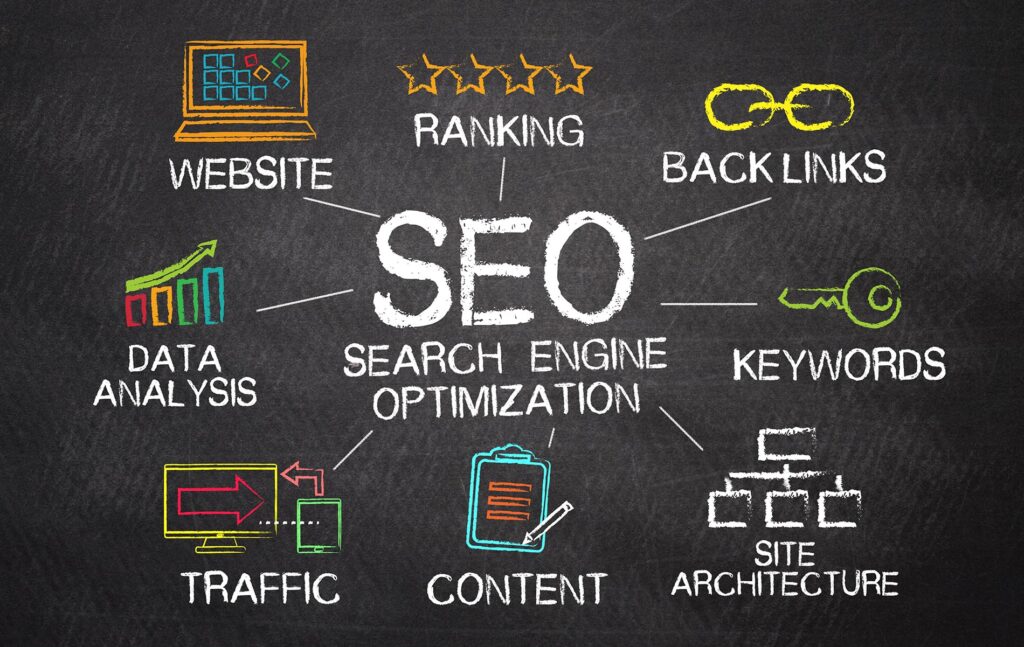
- Organic Traffic: SEO helps drive organic traffic, which is one of the most valuable sources of website visitors because it’s free and brings in users who are actively looking for specific information or products.
- Cost-Effective: SEO is a long-term investment compared to paid advertising. Once a website ranks well, it can continue to attract traffic without ongoing ad spend.
- Improved User Experience: A well-optimized website offers better usability, faster loading times, and a more pleasant user experience, which can lead to higher engagement and conversion rates.
- Brand Authority and Trust: Ranking at the top of search results helps build brand authority and trust among users, as people tend to click on and trust the top results.
- Competitive Advantage: Businesses that prioritize SEO often outperform their competitors in search rankings, gaining more visibility and customers.
SEO is an ongoing process, requiring consistent updates and adjustments as search engine algorithms evolve and user behavior changes. It is a vital part of digital marketing strategy, helping websites reach their target audience, improve engagement, and drive business growth.
Key Elements of SEO for a Website:
- On-Page SEO
- Keyword Research: Identifying relevant keywords that your target audience is searching for.
- Content Optimization: Ensuring content is valuable, informative, and keyword-optimized.
- Meta Tags: Optimizing meta titles, descriptions, and headers to include keywords.
- URL Structure: Creating clean, descriptive URLs that reflect the content of the page.
- Internal Linking: Connecting related pages within your website to improve navigation and SEO.
- Mobile Optimization: Ensuring the website is responsive and functions well on mobile devices.
- Off-Page SEO
- Backlinking: Earning high-quality links from reputable websites to boost credibility and ranking.
- Social Signals: Engagement from social media platforms that may influence search rankings.
- Local SEO: Optimizing the website for local search results, such as “near me” searches, by creating and maintaining local listings.
- Technical SEO
- Site Speed: Ensuring fast loading times, as slow sites tend to have higher bounce rates.
- Crawlability and Indexing: Making sure search engine crawlers can easily access and index your site’s pages.
- XML Sitemaps: Providing search engines with a roadmap of all pages on your website.
- Schema Markup: Using structured data to help search engines understand the content of your website better, leading to rich snippets in search results.
- Content Strategy
- Quality Content: Writing high-quality, original content that satisfies user intent and answers search queries.
- Regular Updates: Consistently updating the site with new, relevant content to keep users engaged and search engines crawling the site.
- User Experience (UX)
- Ease of Navigation: Designing a clear, easy-to-navigate structure for the website.
- Engagement: Making the site interactive and user-friendly to reduce bounce rates and increase time spent on the site.
- Mobile-Friendly Design: Ensuring a seamless experience for mobile users, as mobile-friendliness is a ranking factor.
Benefits of SEO:
- Increased Organic Traffic: SEO helps attract relevant, targeted traffic to your website without paying for ads.
- Better User Experience: SEO improves site usability, load speed, and mobile-friendliness, creating a better user experience.
- Cost-Effective Marketing: Compared to paid advertising, SEO provides long-lasting results at a lower cost.
- Builds Trust and Credibility: Higher rankings on search engines establish authority and trust in your industry.
- Long-Term Results: Once properly optimized, a website can maintain high rankings with minimal ongoing effort.
- Competitive Advantage: Companies that invest in SEO outperform their competitors in search rankings, leading to more visibility, traffic, and conversions.
SEO is a long-term strategy that requires continuous effort and adaptation to changes in search engine algorithms and user behavior. However, its benefits make it an essential part of any online marketing strategy.

